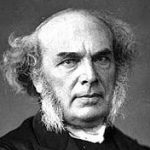Biblical Truth: God will ultimately respond to the injustice in the world; His people are to join Him in practicing justice.
Seek Refuge in God: Psalm 7:1-2.
[1] O LORD my God, in You I have taken refuge; save me from all those who pursue me, and deliver me, [2] or he will tear my soul like a lion, dragging me away, while there is none to deliver. [NASU]
In this psalm David is so overcome with his enemies’ harsh injustice to him that he cries out for divine vindication: Arise, O Lord, in Your anger; lift up Yourself against the rage of my adversaries [v. 6]. The specific details of David’s problem are alluded to in the psalm’s title which describes it as a lament sung “to the Lord concerning Cush, a Benjamite.” We have no other information about Cush, but the fact that he was from the tribe of Benjamin fits well with what we know of the opposition David faced from this tribe. David’s predecessor, King Saul, was a Benjamite. So when Saul was killed by the Philistines and David became king of Israel, a process that spanned nearly eight years, it was natural that the new king’s chief source of opposition was Saul’s tribe. It seems to have lasted for a long time too. For when David was forced to flee Jerusalem years later on the occasion of his son Absalom’s rebellion, a man named Shimei of Benjamin cursed him as he left the city. He accused David of being a “man of blood” and a “scoundrel” [2 Samuel 16:7-8]. Still later, when David had returned to Jerusalem after Absalom’s death and the defeat of his armies, another Benjamite named Sheba led a revolt against him [2 Samuel 20:1-2]. Neither of these men can be identified with the Cush of Psalm 7, but it is easy to understand how the slander described in the psalm could have emerged from the smoldering hostility of this tribe.
David does not report the accusation in detail. But it seems, from verses 3-4, that he had been accused of doing evil to one whom he had no cause to regard as an enemy and of robbing one whom, though he was an enemy, he had no cause to abuse. There are two things we need to note about this specifically. First, a slander like this was a serious matter for one in David’s position. It was not trivial. The king was the chief administrative and legislative officer for Israel. He was responsible for seeing that right was upheld and that justice was dispensed. An accusation that attacked his integrity undermined the moral basis of the kingdom. It was a first step to moral anarchy and, possibly, armed rebellion. The second thing we need to note is the difficulty of dealing with false accusations. It is here that the problem touches us closely. We all know the problem of overcoming slander. What do we do when we are attacked falsely? Should we respond in kind? We cannot do that, because that brings us down to our accuser’s level. Do we protest openly and widely? That tends only to fan the flame. Moreover, people suspect wrongdoing when commotion occurs. How do you vindicate yourself or get out from under such false and unjust accusations? If you are innocent of the fault, you cannot even repent of it and make restoration. What can you do? There is only one thing to do, and that is to take your problem to God, as David does. We can appeal to God for justice.
The psalm begins with a plea for Yahweh’s deliverance. In terms of metaphor, verse 2 makes clear why this is necessary, though the psalm does not yet tell us more literally why the psalmist needs to seek such refuge. The verb have taken refuge is what a person does in relation to something that provides protection, such as a fortress [see Psalm 31:1-4]. Here the psalmist relies on or takes refuge in Yahweh for safety and deliverance. Taking refuge in Yahweh is similar to trusting in Him. Thus the King James Version translates the verb as put my trust. In verse 2 the psalm expounds the first of a number of vivid figures of speech in the psalm. The first two verbs (tear, dragging) are parallel and me is the implied object of all three verbs (tear, dragging, deliver). The link with verse 1 is emphasized by the recurrence of deliver as the closing word in each verse. This deliverance refers to action that rescues people from the attack of wicked people or from illness. In this passage it does not refer to salvation whereby one is delivered from the wrath of God.
Evaluate your Actions: Psalm 7:3-5.
[3] O LORD my God, if I have done this, if there is injustice in my hands, [4] if I have rewarded evil to my friend, or have plundered him who without cause was my adversary, [5] let the enemy pursue my soul and overtake it; and let him trample my life down to the ground and lay my glory in the dust. Selah. [NASU]
In looking at how David dealt with the problem of false accusations, we discover two surprising features, which for us are problems in themselves. The first is David’s protestation of innocence. How can David claim to be innocent when we all are guilty of being sinners? There are three things to keep in mind as we think about this problem. First, although David is expressing himself as perhaps we would not, his words do not mean that he is perfect, only that he is innocent of the crime of which he was charged. This is a very important distinction, the kind that is made every day in courts of law. The question is not whether David was morally perfect but whether he was innocent of this particular slander. And he was. David was known for his integrity and for his generous conduct toward enemies. The second thing to keep in mind is that David does not take vengeance into his own hands, which he might well have been able to do, being king. Instead he submits his case to God, who alone has the ultimate right to judge and who alone can judge perfectly. This is an important example for us. Do we flee to God or do we take matters into our own hands and retaliate? The third thing to notice is that, although David is pleading for justice in his own case, he does not separate his prayer from the concern that God will also exercise judgment over the peoples of the earth.
The three if-clauses in verses 3-4 culminate in the challenge flung down in verse 5. They reveal a deeper hurt than persecution, namely slander. Like Job’s great protestation [Job 31], David’s reply reveals something of his code of honor, as well as the thrust of the accusation, which alleged that he dealt in bribes and treachery. The climax of the claim to faithfulness is the prayer against oneself in verse 5. The four verbs (pursue, overtake, trample, lay) in the clauses tell a vivid story of pursuit, capture, and subjection, the end being humiliation. People who believe in prayer are acting quite seriously when they express a wish like this one and the willingness to do so thus constitutes a significant evidence of a faithful life. For David certainly would not ask Yahweh to turn him over to his enemy if he thought that he was guilty.
Call for God’s Justice: Psalm 7:6-11.
[6] Arise, O LORD, in Your anger; lift up Yourself against the rage of my adversaries, and arouse Yourself for me; you have appointed judgment. [7] Let the assembly of the peoples encompass You, and over them return on high. [8] The LORD judges the peoples; vindicate me, O LORD, according to my righteousness and my integrity that is in me. [9] O let the evil of the wicked come to an end, but establish the righteous; for the righteous God tries the hearts and minds. [10] My shield is with God, Who saves the upright in heart. [11] God is a righteous judge, and a God who has indignation every day. [NASU]
The second surprising feature of Psalm 7, which is also a problem for us, is David’s appeal to God for justice. Vindicate me, O Lord, according to my righteousness and my integrity that is in me is his cry in verse 8. And his cry is urgent. Look at the imperatives: arise, lift up, arouse, appointed, judges. We have been taught to believe that only fools ask for justice from God and that what we need from God is not justice but mercy. In his Reflections on the Psalms, C. S. Lewis makes an important distinction between two kinds of justice: ultimate or heavenly justice, which is most commonly in the Christian’s mind when he considers justice; and limited or earthly justice, which was the primary preoccupation of the Jew. These two understandings produce two different attitudes toward judgment. On the one hand, the Christian trembles at the thought of God’s judgment, because he thinks of himself as the defendant and knows that he is not innocent. Apart from the substitutionary atonement of Christ, he knows that he stands to be condemned. The Jew, thinking of earthly justice, does not tremble at judgment but seeks or desires it. Thus we see in these verses David appealing for earthly justice on his part because he is innocent of the slanderous charges that he is being accused.
[6-9] David’s prayer in verse 5 that he does not expect to see fulfilled is succeeded by a plea and a series of wishes that he longs to see fulfilled. David uses three verbs (arise, lift up, arouse) that gives the impression that God is asleep and needs to be awaken [see Psalm 78:65]. David uses this language because he does not see God acting in judgment upon the evil that David is dealing with. Two parallel urgings seek to rouse Yahweh to action. Both refer to wrath, with the neat variation that the first refers to Yahweh’s wrath (Your anger), which is the psalmist’s hope, and the second to the attackers’ wrath (the rage of my adversaries), which is the psalmist’s fear. David knows that Yahweh must be angry at what is going on, and uses this as motivation for asking Yahweh to intervene and to carry out His appointed judgment. Thus David puts his trust in the universal judgment upon evil that Yahweh has appointed. His prayer is that Yahweh will carry out this appointed judgment now in David’s particular situation; that the Lord will vindicate His servant by judging this evil which confronts David.
The Hebrew of verse 7 calls on the Lord to return on high as a prelude to judgment. It appeals to Yahweh to take His rightful place as Judge over all the people. Here God is represented as coming down to visit the earth and gathering the nations before Him and sitting down above them on the judgment-seat. In verse 8, David asks for Yahweh as Judge to decide in his favor and vindicate him from the evil acts of which he is accused. My righteousness is not thought of as absolute but replies to the accusations of verses 3-4. David’s faithfulness and integrity concerning these allegations forms the basis of his appeal. The two lines of verse 9 bring to a close the plea in the psalm and effect a transition to the statements of trust, praise, and confidence that will follow. They thus form the hinge of the psalm. The first line gives David’s final plea while the second line gives the reason why David can appeal to the Lord. David’s final appeal consists of a request for the Lord to put an end to evil while, at the same time, establishing the righteous. By recognizing that the righteous God tries the hearts and minds, David is once again giving evidence of his innocence. Thus, concerning this particular situation, David is happy to have God investigate his inner person to see whether the plans and attitudes there match his outward words; his claim of innocence.
[10-11] Verse 10 begins a transition in this psalm to a statement of faith on the part of the psalmist. David is confident that he shall find God his powerful protector and defender. Verses 10-11 contain four statements about God, each pair being parallel in meaning. The first pair [10] describes God’s nature as it affects the psalmist in the context of undeserved threat. Once again David claims to be a person of integrity, one in whom there is no gap between the outward words and the inner heart. The second pair [11] describe God’s nature in itself, the characteristics that lie behind the affirmations in verse 10. Indignation is another word that combines attitude and action, a sense of outrage and a denunciation or curse.
Rely on God to Respond with Righteousness: Psalm 7:12-17.
[12] If a man does not repent, He will sharpen His sword; He has bent His bow and made it ready. [13] He has also prepared for Himself deadly weapons; He makes His arrows fiery shafts. [14] Behold, he travails with wickedness, and he conceives mischief and brings forth falsehood. [15] He has dug a pit and hollowed it out, and has fallen into the hole which he made. [16] His mischief will return upon his own head, and his violence will descend upon his own pate. [17] I will give thanks to the LORD according to His righteousness and will sing praise to the name of the LORD Most High. [NASU]
These verses are an expression of David’s deep confidence in God. David says that God will protect him, being his shield against foes; God is righteous, expressing His wrath against evil every day; God will judge His accusers if they do not repent; and God has arranged things so that evil eventually brings judgment on itself. For this latter assertion, David employs a bold image later used by James, saying that the wicked conceive trouble, become pregnant with evil, and eventually give birth to falsehood [14; see James 1:15]. He adds that the wicked dig a hole to trap others but eventually fall into it themselves. The lesson in verses 12-16 is that either the evildoer will turn back from wrongdoing (repent, v. 12) or the evildoer will have his violence fall back on his own head [16].
David concludes this psalm by giving thanks and praise to the Lord because of Who God is (His righteousness, name of the Lord). This psalm is a great testimony. Yet here is the striking thing. It is uttered at a time when, so far as we know, David had not yet obtained the earthly justice from God that he was seeking. He had come to God with his problem, which was the right and wise thing to do. In doing so, he has provided us with an example of what we can do in similar circumstances. Yet in spite of these many right attitudes and actions we do not know if David was actually vindicated in this life. Yet he still concludes his psalm with thankfulness and praise to his God, resting his situation in the character of God. And this is the primary lesson we need to learn from this psalm.
Questions for Discussion:
1. Why is verse 9 called the “hinge of the psalm?” What shift in David’s thought process occurs in verse 10?
2. What does this psalm teach us concerning how to deal with false accusations that people make against us? When confronted with injustice, how long does it take you to get to the point David did in verses 10-11, and 17?
References:
Psalms 1-41, James Montgomery Boice, Baker.
Psalms, Volume 1, John Goldingay, Baker.

















